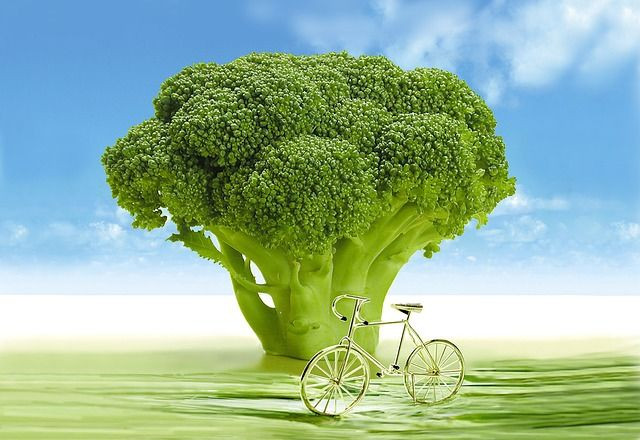Eat Your Broccoli: Phenolic Compounds Found In Cruciferous Vegetables Are About To Get A Lot Healthier

Broccoli is the bane of every young child’s existence, but if research continues to reveal its health benefits, then parents are going to keep filling up their children’s plates with this cruciferous vegetable. At the heart of this superfood are phenolic compounds, which trigger antioxidant effects capable of capturing harmful free radicals before they seriously damage cells. Phenol concentrations found in our diet have been deemed important to cancer prevention and treatment.
In a recent study, published in the journal Molecular Breeding, researchers from the University of Illinois College of Agricultural, Consumer, and Environmental Sciences examined different genes that control the buildup of phenolic compounds, including some flavonoids, in broccoli. They plan to use these genes to increase the amount of phenols we get from our diet, the only source for these compounds.
"These are things we can't make ourselves, so we have to get them from our diets," said Jack Juvik, lead researcher and geneticist from the University of Illinois, in a statement. "The compounds don't stick around forever, so we need to eat broccoli or some other Brassica vegetable every three or four days to lower the risk of cancers and other degenerative diseases."
Juvik and his colleagues crossed two different strains of broccoli and tested them for phenolic content and antioxidant capacity. The research team used a technique known as quantitative trait locus analysis to identify genes that are involved in generating phenolic compounds.
Their findings led to the identification of specific genes that result in the accumulation of different phenolic compounds, such as flavonoids and phenolic acids. Moving forward, the researchers hope to use this data to breed broccoli and other brassica vegetables, like kale, cauliflower, and Brussels sprouts, to produce strains with more phenolic compounds.
"It's going to take awhile," Juvik notes. "This work is a step in that direction, but is not the final answer. We plan to take the candidate genes we identified here and use them in a breeding program to improve the health benefits of these vegetables. Meanwhile, we'll have to make sure yield, appearance, and taste are maintained as well."
According to the research team, the phenolic compounds found in broccoli are flavorless and stable, so they won’t lose any of their healthy qualities if the vegetable is cooked a certain way. They are absorbed immediately by the body and sent to certain areas or stay concentrated in the liver. Flavonoids are known to alter the way our cells function by releasing healthy enzymes capable of improving cell signal pathways within the body. Their antioxidant activity is often linked to reduced inflammation.
“We need inflammation because it's a response to disease or damage, but it's also associated with initiation of a number of degenerative diseases. People whose diets consist of a certain level of these compounds will have a lesser risk of contracting these diseases," Juvik added.
If you are looking to add broccoli to your diet, then try frying it in extra virgin olive oil to enhance phenolic compounds. Researchers from the University of Grenada recently concluded a study that analyzed different cooking methods, including frying, sautéing, or boiling in a mix of water and olive oil, using vegetables from the Mediterranean, which are known for their high phenolic content. The phenols from vegetables fried in the oil had better antioxidant activity and a larger concentration of phenolic compounds.
Phenols aren’t the only compounds that make broccoli such a staple of any nutrient-packed diet. Sulforaphane is another compound found in broccoli and other cruciferous vegetables that has been implicated in the prevention of a variety of different cancers, including those of the colon, head and neck, and liver.
Source: Gardner A, Brown A, Juvik J. QTL Analysis for the Identification of Candidate Genes Controlling Phenolic Compound Accumulation in Broccoli (Brassica oleracea L. var. italica). Molecular Breeding . 2016.
Published by Medicaldaily.com



























